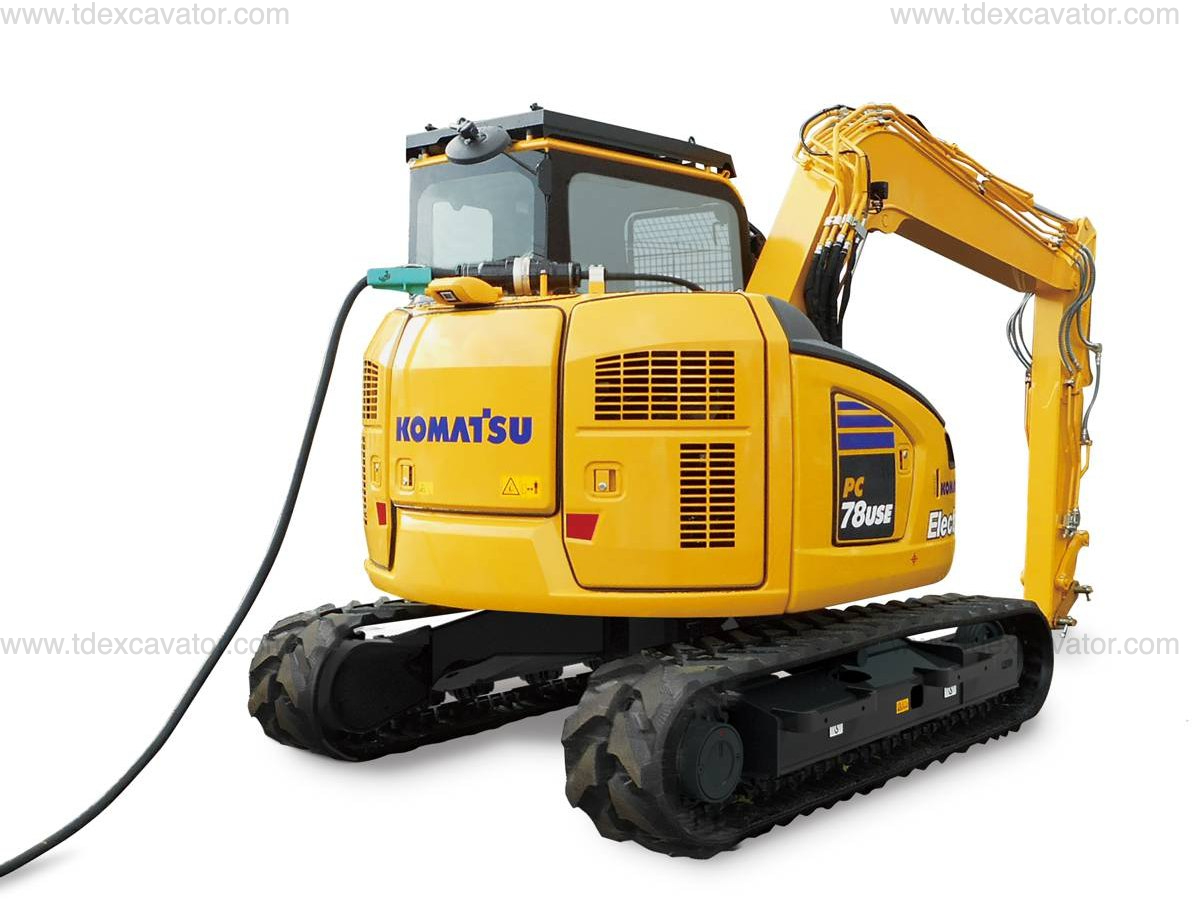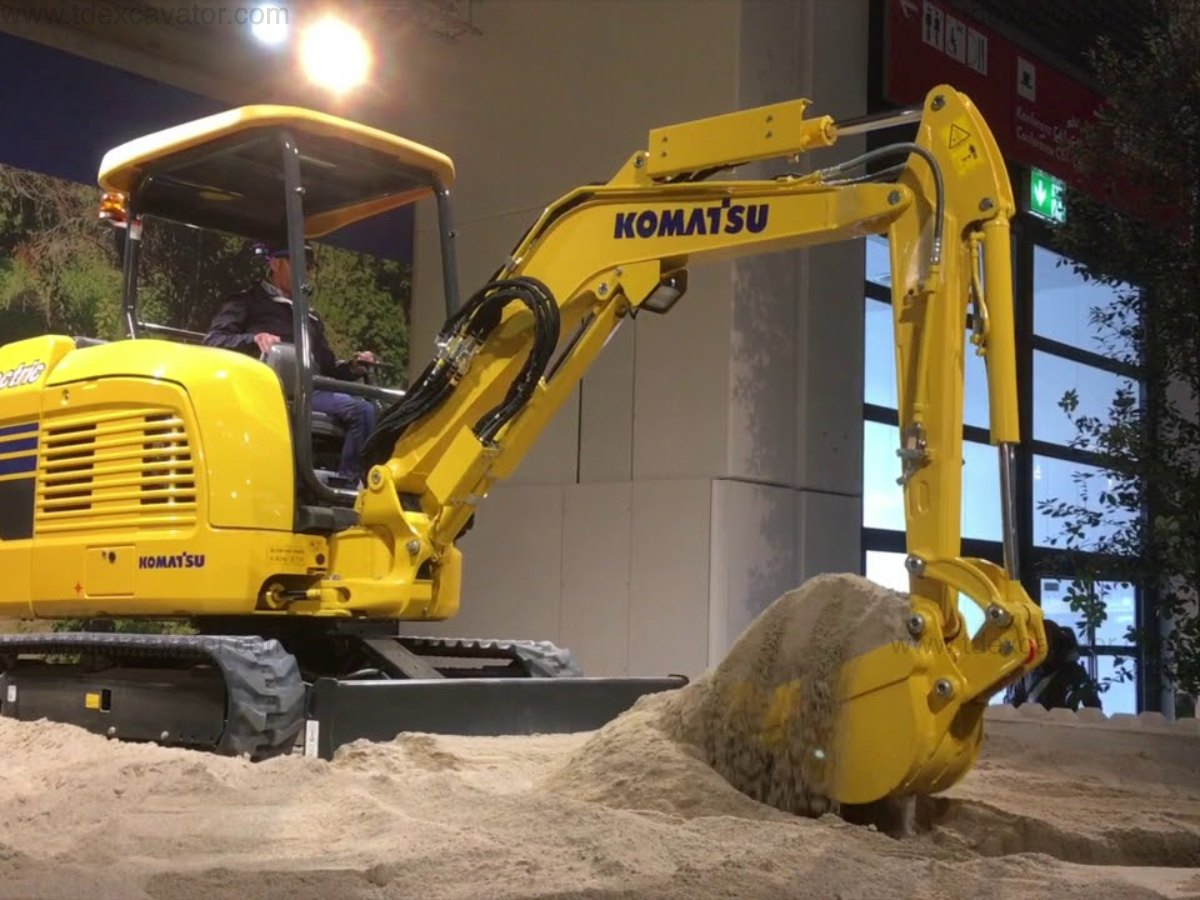Recommend Products
-
$20,000$21,000
-
$88,000$95,000
-
$11,500$12,000
-
$46,000$48,000
Now many excavator manufacturers have set their sights on the electric excavator market, and many excavators have been put into use. Pure electricity has many advantages, very low noise and zero emission pollution can be perfectly used in different types of working environments in the city. With the development of battery technology, it has been able to meet the needs of excavators to work continuously for several hours. However, there are still technical barriers and shortcomings.
In the past few years, many excavator manufacturers have invested a lot of energy in hybrid excavators, but now we can hardly see these excavators. The main power output of hybrid power relies on the engine and battery module. It can indeed reduce emissions and fuel consumption during use. But the cost of use is very high. The maintenance of diesel engines is as important as the maintenance of batteries, especially if one of them has problems, the excavator cannot be used normally. And data analysis and work testing show that the working efficiency and performance of hybrid excavators cannot maintain a balanced level with the fuel version. In some complex and construction-pressured jobs, hybrid power cannot meet the requirements. In the TD used excavator market, hybrid excavators are basically unpopular.
There are two types of pure electric excavators. One type uses lithium battery packs as energy to support the daily use of the excavator. Such excavators are basically small or mini excavators. The second type is cable power supply mode, which usually appears in 40-ton large excavator equipment. The limitation is that it cannot be used in remote areas without power supply. The advantage is low cost of use. Low maintenance cost, but the movement of the excavator requires a lot of preparation.
Hybrid excavators and pure electric excavators each have their own unique advantages and limitations. Here are some of their main advantages and disadvantages:

Hybrid excavator
Advantages:
- High fuel efficiency: By combining internal combustion engines and electric motors, the use is dynamically adjusted according to the workload to achieve higher fuel efficiency.
- Low emissions: Reduce exhaust emissions and reduce environmental impact.
- Low noise: The electric motor is used when working at low load or no load to reduce noise.
- Good driving experience: Provides fast response and stable power output to improve operation accuracy.
- Energy efficiency optimization: Achieve optimal use of energy and switch power sources according to working conditions.
Disadvantages:
- Higher price: Because hybrid technology requires additional costs, such as batteries, motors and power control systems.
- Complex system: An integrated control system is required to achieve coordinated work between the internal combustion engine and the electric motor, which increases the complexity of the system and the difficulty of troubleshooting.
Pure electric excavator
Advantages:
- Zero emission: Compared with traditional fuel-powered excavators, it achieves zero emission and reduces noise levels.
- Low operating cost: Since the electric drive system is maintenance-free, the actual use cost is lower.
- High output efficiency: The output efficiency of the pure motor can reach more than 95%, more than double that of the traditional fuel engine.
Disadvantages:
- Extremely high cost: Customers have poor acceptance of cost-effectiveness.
- Short battery life: Frequent charging or battery replacement is required.
- High safety requirements: Limited working conditions.
Hybrid excavators combine the advantages of internal combustion engines and electric motors to improve fuel efficiency, reduce emissions, and optimize operating experience. The following are some well-known hybrid excavator brands and models on the market and their features:
Komatsu PC200-8 Hybrid
- Brand: Komatsu
- Model: PC200-8 Hybrid
- Main features: The electric drive rotation technology is adopted. The rotation of the excavator is driven by an electric motor, which can collect and utilize the inertial kinetic energy of the excavator during rotation, reducing the loss of oil pressure. At the same time, it is equipped with a 4-cylinder low-speed engine. The engine speed automatically decreases when decelerating, which reduces fuel consumption by about 20% compared with general excavators of the same model, and can effectively reduce carbon dioxide emissions by 25%.
Hitachi ZH200Hybrid
- Brand: Hitachi
- Model: ZH200Hybrid
- Main features: The newly developed hybrid power system is combined with the hydraulic system developed by Hitachi Construction Machinery to form a unique system. After testing and comparison by Hitachi Construction Machinery, the fuel consumption of ZH200 is reduced by more than 20% compared with the ZX200-3 model excavator.
Kobelco SK80 Hybrid
- Brand: Kobelco
- Model: SK80 Hybrid
- Main features: It can reduce CO2 emissions by 40% (reduce fuel consumption). The product integrates the technical essence of Kobelco Group. During the development process, it obtained the assistance of Kobe Steel Co., Ltd. Nishishin Research Institute.
Caterpillar Cat336E H
- Brand: Caterpillar
- Model: Cat336E H
- Main features: Fuel efficiency is 50% higher than 336D, and fuel consumption is 25% lower than that of 336E standard model. Even in low-intensity rotation conditions, there will still be obvious fuel saving effects.
Volvo EC380 HD Supreme Series
- Brand: Volvo
- Model: EC380 HD Supreme Series
- Main features: It adopts Volvo hydraulic hybrid technology, uses the lowering action of the boom to store energy in the accumulator, and uses the stored energy to drive the auxiliary motor that provides power to the engine system. The machine's fuel efficiency is improved by 20%, while having the power and performance of the traditional EC380 heavy crawler excavator.
Caterpillar, Komatsu, Hitachi, and Volvo excavator manufacturers have all demonstrated their respective technological advantages and innovation capabilities in the field of pure electric excavators. The following is an introduction to the key technologies used in the pure electric excavators of these five companies:
Caterpillar
- Model: Caterpillar launched the Cat301.9 electric compact excavator based on the 301 platform, and the electric excavator Cat 320EV developed based on the Cat 320 excavator.
- Advantages: Caterpillar's pure electric excavators are equipped with smart technology features such as the Cat Intelligence system, 2D slope control system, and intelligent weighing system, which improve operational safety and efficiency. Caterpillar's battery-powered equipment prototype uses a modularly designed lithium-ion battery series, providing flexible configuration across multiple applications and supporting fast charging options, designed to optimize the energy life cycle and reduce total operating costs.
Komatsu
- Models: Komatsu launched the PC30E-5 electric mini excavator, as well as an electric excavator based on the PC395LC-10 hybrid excavator.
- Advantages: Komatsu's electric excavators use large-capacity lithium-ion batteries and integrated cooling systems for batteries and electrical components to meet long operating time requirements. The battery-swap electric mini excavator jointly developed by Komatsu and Honda continues to work by replacing batteries without spending time on charging.
Hitachi
The Hitachi X55U-6EB excavator is a mini hydraulic excavator with electric drive technology. It combines Hitachi Construction Machinery's latest research and development results in electric drive technology to provide efficient and environmentally friendly operation solutions. Here are some of the main advantages and technical features of this excavator:
Main advantages
Noise control: Electric drive products excel in noise control, providing operators with
Power cost expenditure: Compared with traditional internal combustion engine driven excavators, electric drive excavators have obvious advantages in power cost expenditure, which helps to reduce operating costs
Flexibility: Supports the switching use of commercial power and batteries, providing extremely high flexibility and adapting to different working environments and needs
Remote autonomous driving: Supports digital cutting-edge technologies such as remote autonomous driving to improve working efficiency and safety
Volvo
- Model: Volvo launched the EC500 plug-in electric excavator.
- Advantages: Volvo EC500 plug-in electric excavator has zero exhaust emissions, and the plug-in design allows it to work continuously, with lower maintenance costs and shorter working cycles, bringing a more comfortable working environment for operators.

In the future, if no new energy is discovered or battery technology is greatly improved, pure electric excavators can basically only move to mini excavators. The price of replacing the battery pack is very high. If there is no use requirement in your city, we still recommend that you buy the fuel version. If it is used in a remote area, you need to be fully prepared if the charging problem is not solved.